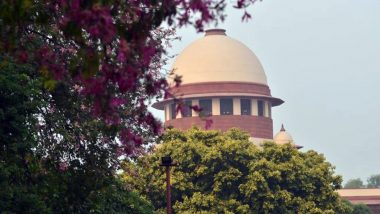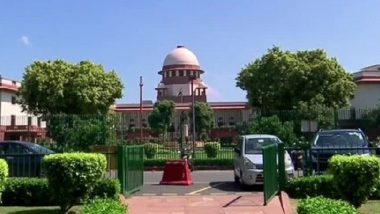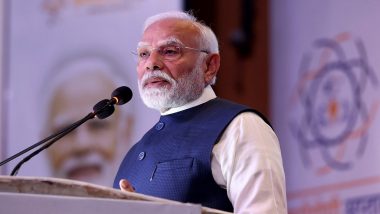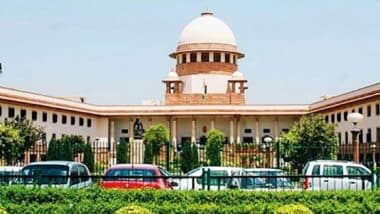New Delhi, November 5: The Supreme Court advised High Courts that the appropriate modifications or amendments be made to the criminal practice or trial rules relating to crucial statements recorded under Section 164 of the Criminal Procedure Code (CrPC) in rape matters.
A bench of Chief Justice of India Uday Umesh Lalit and Justice Bela M Trivedi's suggestions came while disposing of a contempt petition filed by the mother of two young children who have been victims of sexual abuse by their own father and his friends. The petitioner's advocate Tanya Agarwal filed a note of submissions. Supreme Court Lifts Uttarakhand HC Stay on 30% Horizontal Reservation for Women in Public Employment.
One of the submissions is to the effect that Criminal Practice Rules framed by various High Courts must include and incorporate provisions consistent with the law declared by the top Court in Shivanna alias Tarkari Shivanna and in Ms. A. vs. State of Uttar Pradesh and Another.
"We see force in the submissions made by Agarwal, learned counsel. We suggest to every High Court that the appropriate modifications/amendments be made to the Criminal Practice/Trial Rules incorporating provisions consistent with the directions issued by this Court in the decisions in Shivanna alias Tarkari Shivanna and A vs. State of Uttar Pradesh and Another," the apex court said.
As per the judgement passed in Shivanna alias Tarkari Shivanna and in Ms. A matter, the court has held that the statement of the victim recorded under section 164 of CrPC is supreme and cannot be compromised in any manner.
As per the petitioner, the top court had issued guidelines related to the crucial 164 CrPC statement wherein it was directed that the contents of such statements under Section 164 CrPC should not be disclosed to any person till the chargesheet/ report under Section 173 CrPC is filed.
The apex court was dealing with the contempt petition filed against Telangana Police for allowing access to crucial statements recorded under Section 164 CrPC to the rape accused despite the chargesheet not being filed in the matter. Two-Finger Test Banned by Supreme Court; Persons Conducting It To Be Held Guilty of Misconduct.
Advocate Tanya Agarwal, arguing counsel for the Petitioner submitted that the law laid down by the apex court was not followed in the present matter and the statement of the victim recorded by the concerned Magistrate under Section 164 CrPC was extensively relied upon by the accused in various proceedings.
Advocate Agarwal said, "Investigating Agency allowed access to such statement recorded under Section 164 of the Code, showing complete defiance in following the law laid down by this Court." The plea was filed by Tanya Agarwal and Shashank Singh through an advocate on record Anil Kumar, who sought to initiate contempt proceedings against Telangana Police and the accused persons.
(This is an unedited and auto-generated story from Syndicated News feed, LatestLY Staff may not have modified or edited the content body)





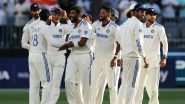


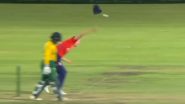
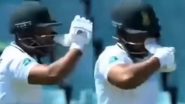

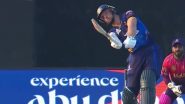

 Quickly
Quickly









